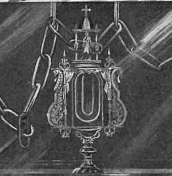We confess with full religious conviction that our Lord and Savior Jesus Christ was born as a man, that is, he was male, with the bodily constitution for the capacity to become a biological father. It is attested by Scripture and Tradition that Jesus lived a life of sexual celibacy, which did not repudiate the value of pro-creating children, but affirmed it by opening the analogy to eternal life: the human person is called to be adopted by God as a son or daughter of the Father. And thus the pro-creation of new life is a kind of “eternal” good in this world.
We also confess that the Blessed Virgin Mary was a true mother in every respect of the term. The miracle of the virginal conception of Jesus as God and man is not a contradiction of the humanity of Christ, nor of the femininity of his mother. Rather, the divine origin and call of human nature are both affirmed, in continuity with the creation of Adam and Eve by God in the book of Genesis. Because the Eternal Son of God became the only-begotten son of a human mother, all sons and daughters can become the born-again sons and daughters of God.
As our Savior proclaimed the Kingdom of God, he used both fatherhood and motherhood as dual analogies for salvation. The Apostles of Christ would continue the theme of a divine adoption as they proclaimed the same Kingdom of God. A likeness to the natural relationships of father and mother to children is always a religiously appropriate analogy to each man’s or woman’s capacity to enter eternal life.
A deep gratitude for the gift of human life is therefore part of the Christian Gospel, and Jesus himself profoundly affirmed the Jewish commandment regarding gratitude for life: “honor your father and your mother.” This commandment is intricately bound up with our beliefs about the institution and commitment of heterosexual marriage, and the perennial goodness of biological maleness and femaleness. Both are fundamentally the constitution of the ability to procreate human life, to conceive and bring forth children, each a son or a daughter in the same divine plan of humanity.
Whereas human persons share the same constitution of all other animals which reproduce through the physical workings of biological sex, the Catholic Church has always condemned those philosophies that proclaim human beings as reducible, among ordinary biological life, to an arbitrary outcome of materialistic evolution. Each human person is a unique creation of God, as part of a human family, constituted each as male or female in both body and soul according to a divine plan and purpose.
In keeping with the teachings of Jesus, we affirm the gift of God in fatherhood and motherhood. Again, by this we do not reduce a person merely to biology, but nor do we allow any disdain upon the intrinsic and permanent nature of the biological sex of each person. This constitutes the balance and integration of body and soul in Christian theology.
As bodily creatures of God, the reality of fatherhood and motherhood are therefore not “gender roles” arbitrarily assigned by customs. Nor is it mere custom, subject to change or update, to use language and pronouns that correspond invariably to biological sex.
But as spiritual beings with intellect and will, a variety of vocations in life can unfold within the identity of being a son or daughter of God. All genuine vocations and moral paths of human development affirm the goodness of our bodily origins in our parents, yet not all must repeat the same vocation of being a father or mother. Our spiritual origins in God the Father point to an eternal call “like the angels in heaven.” Each kind of life path can affirm the goodness of body and soul through moral agency, and life in the family of God: parents of children, infertile couples, the celibate man or celibate woman.

